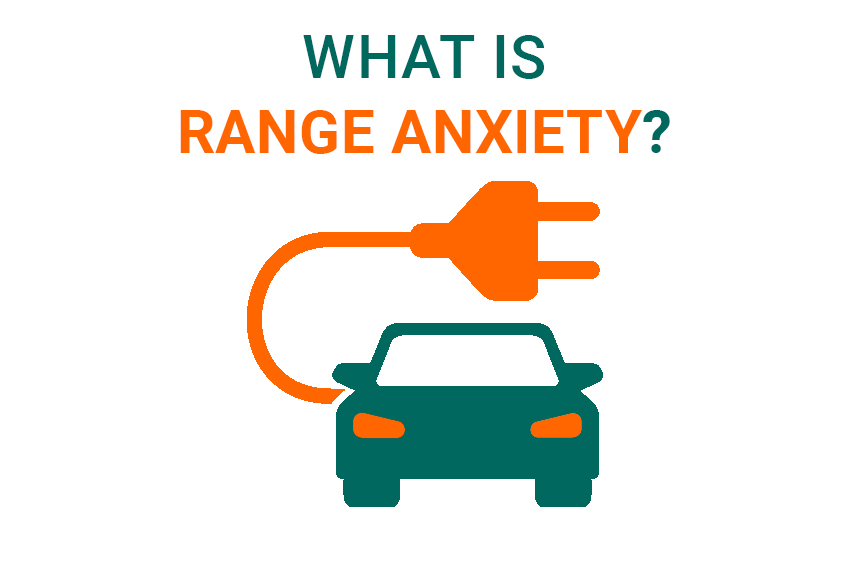The term Range Anxiety was first used in an article by Richard Acello in the San Diego Business Journal in 1997. Though it’s primarily associated with battery electric vehicles (BEV) it can also be used when referring to the tank capacity of a traditional internal combustion engine vehicle (ICE).
For a long time, it’s been believed that range anxiety is one of the core reasons why people are put off the idea of purchasing or leasing an electric car. However, technology has come a very long way since 1997 and with more electric vehicles available, range is one thing that should no longer be a concern.
What is range anxiety?
In the simplest terms, range anxiety is a concern that your vehicle will not be able to reach your end destination due to running out of power (be that battery or fuel). In the UK, a huge concern for many people who are considering the switch from ICE to BEV, is that the charging infrastructure they need to carry out their journeys is not in place to support them, and the battery will run down to nothing before they reach a suitable charging station.

How to overcome range anxiety?
The core strategy in alleviating range anxiety and encouraging the switch from petrol and diesel to electric is in education.
According to the Mobility 2030 report from KPMG, the Anglo-Dutch accounting organisation, the vast majority (in fact 99.3%) of all journeys taken by car are less than 100 miles. In fact, the average daily journey made in the UK is no more than 30 miles.
The report also looked more carefully at the people more likely to experience range anxiety and it is a concern more commonly felt by people who don’t drive or are new to the concept of driving an electric car. Researchers stressed that the best way to overcome this fear was to actually spend more time in an electric car, testing its limitations and eliminating the range anxiety at the same time.
In the last few years, electric vehicle ranges have increased substantially. Manufacturers such as Tesla have produced cars, like the Model 3, that can travel over 300 miles before they need recharging. Vehicles such as the Nissan Leaf and Renault Zoe have also been upgraded to provide a more generous range.
Want to find out more about the range and charging times of electric vehicles? Download our datasheet.
What is being done to reduce range anxiety?
So, education and experience are felt to be the primary ways to alleviate a driver’s personal feelings when it comes to range anxiety. But what can be done to ensure that, as people drive longer distances and larger vehicles with an unavoidable lower range due to their weight are introduced (vans and trucks), range anxiety is eliminated?
As part of their drive to rid UK roads of all petrol and diesel cars by 2050, the government put multiple systems in place to encourage manufacturers and individuals to buy electric. In March 2020, they extended their infrastructure grants scheme for a further 12 months. This scheme was set up to aid in funding for home, workplace and on-street residential charge points for electric cars.

In May 2020, a paper was published by the Department for Transport, working with the Office for Zero Emissions, Department for Business, Energy & Industrial Strategy, and Office for Low Emission Vehicles which outlined the government’s plans for setting up and maintaining a comprehensive network of high-powered charge points across England’s motorways and A-roads.
Want to find out more about electric vehicles? Read our article about the technology for more information.
Proving that the goal of ensuring the UK charging infrastructure is built and strengthened, a fund of £20 million was set up to increase the number of charge points available across the country.
The commitment to provide a supportive infrastructure that will enable people to charge their electric vehicles on the move is another step in the journey to eliminate any range anxiety that remains.
Conclusion: Range Anxiety
When the concept of range anxiety was first mentioned in 1997 there were very few electric vehicles on the roads, none of which were available in the UK. The range that they were capable of was incredibly low and the charging infrastructure was non-existent.
As we move closer to, first, 2035 when no new petrol or diesel vehicles will be permitted for sale in the UK and 2050 when all vehicles on the road will have to be electric, our infrastructure is improving. Also, between 2012 and 2020, the average range of a new electric vehicle has gone from just 67 miles to 259 miles.
With more new vehicles being released every year, and battery technology improving, range anxiety will soon be a thing of the past if it’s not already.

